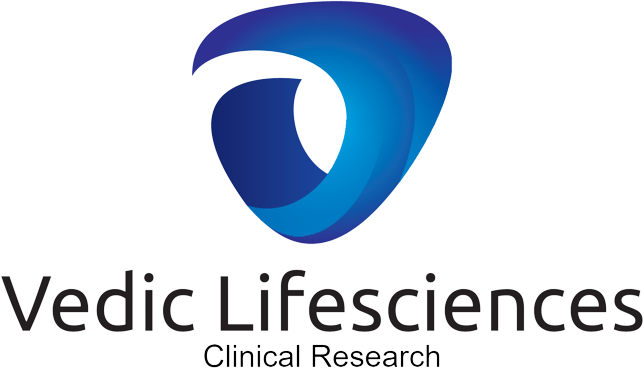
Selecting a contract research organization for success
Supplement brands should choose a contract research organization that can provide high-quality credible clinical data at a reasonable cost.
Only a few finished product brands may have the in-house expertise to conduct research, thus it may be challenging for them to design and conduct a human study themselves or closely manage University labs. Hence, these brands turn to contract researcher organizations with experience.
Some firms may avoid working with a researcher organization that has no experience in that category. But assigning too much to prior category experience may be counter-productive. What is more needed is the willingness of the contract researcher organization’s scientific team to dedicate time in researching the intended claims and competition. A contract researcher organization’s market orientation and familiarity with competitive and regulatory landscape in a category and geography should be considered, but an organization with wider experience in handling diverse claim substantiation may be preferred over one who has experience of only a few categories. A contract researcher organization specialized in nutraceutical research may be preferred over those that conduct drug trials.
Experience is of limited use if the contract research organization doesn’t have access to the latest technology. Improved lab technology, instrumentation, questionnaires and other tools for assessing clinical endpoints can substantially build over previous science. contract research organizations may not have these assets in-house, but may have access to the modern assessment tools for a state-of-the-art study. A review of the latest literature in the category can reveal the tools that are currently recommended.
Quality of data
Quality is paramount, but it is differently understood by stakeholders. A clinical study is an experiment and, like any other scientific research, is fraught with uncertainties. More so when the experiment is on humans who tend to be biased, non-compliant and sometimes outright moody. Many things can go wrong. Quality assurance (QA) is critical to minimize deviations in these uncertain experiments.
A contract research organization that can demonstrate the systems, capabilities and record of QA of clinical data easily scores over the others. Third-party verification of clinical trial QA is less common than for other processes, such as GMPs (good manufacturing practices). The International Conference on Harmonization (ICH) E6 guideline for good clinical practices (GCP) adopted by FDA in 1996 is the gold standard for clinical research. Good contract research organizations can demonstrate GCP compliance through specific past illustrations. Visiting their offices and reviewing their standard operating procedures (SOPs) helps brands ensure contract research organizations are following proper protocols. If a brand cannot conduct an in-person meeting, then it can ask the contract research organization to share its list of SOPs, monitoring reports, audit reports, site selection, initiation reports, closeout reports, etc. Staff resumes, training records and investigator training records can also be insightful. Such proprietary documents can be viewed with a file viewing software if the CRO is not comfortable sharing them over email. It may be risky to accept a general claim of “We are GCP-compliant.” Trust but verify – goes the adage.
Timelines
A major reason for study sponsors to choose contract research organizations over university labs is that contract research organizations can recruit large numbers of participants across multiple sites in several cities or countries.
A contract research organization can offer a Gantt chart that explains timelines and notes which activities are beyond the control of the contract research organization (e.g., regulatory approvals) and some that are sponsor responsibility (e.g., production and shipping of study supplies). Contract research organizations should have proprietary systems to identify and manage potential risks. Contract research organizations that have access to a study-specific database of volunteers may be preferred. Alternatively, they may have a network of GCP-trained investigators ready to conduct a nutraceutical study. Contract research organizations that have used innovative techniques for recruiting for challenging studies in the past may be interviewed further on how they may plan for the current study recruitment. Innovative techniques for improving volunteer compliance, better statistical methods and smart use of technology to bring processes to speed may be interesting stories to consider.
Cost
The cost of the study can be a deal-clincher or even the key consideration. But it is good to look closely because study estimates from two contract research organizations are rarely comparable directly. Selecting an apparently cheaper contract research organization without looking closely at the fine print can prove to be a costly mistake. Even if both contract research organizations quoted based on the same study outline, the costs can be remarkably different based on the scope of the service being offered (single site or multi-centric study, data monitoring, level of quality assurance, etc.) and the final deliverable (study report or published paper). Removing or adding even one data point on the lab estimation can make a significant difference in the costs. The proposal may be studied carefully to check if the costs are for completed cases or only recruited (randomized) cases.
Risks
Brands must be sure they or their contract research organizations consider:
- Delays in recruitment, screening failures and dropouts from the study
- Regulatory uncertainties and contingency plans.
- Adverse events
- Clinical trial insurance
- Data security measures
Some studies can last longer than a year. The stability of most dietary supplements is two years, so it is important that a fresh batch is supplied for the study. However, it is imperative that the CRO has an efficient system for the careful handling of the trial supplies especially when the product under investigation is sensitive to storage conditions. Mishandling of study products such as probiotics can be a disaster.
Communication, responsiveness and flexibility
A common regret about clinical study providers is that they are not responsive enough to sponsor needs for communication and transparency about study progress. Project timelines and updates can be uncertain. University researchers can particularly get pulled into their other academic priorities quite easily, leaving the customer guessing. Contract research organizations come with the advantage of greater responsiveness. But before choosing a contract research organization, it is important to interact with the specific project manager(s) who are likely to handle the project. Who will be the single point contact for the client, updating it on the status of the study? Who is responsible for all planning, maintaining quality and predicting uncertainties? In the negotiations, it may also emerge that a contract research organization is too rigid and will not accommodate scope changes in the protocol or the service as desired by the client.
Data management and biostatistics
An otherwise well-managed study can go to dust if the capture and management of the data from the study sites are faulty. The contract research organization must be assessed for its competence and experience in all processes from database design to database lock. Finally, it is important to ensure that it is using validated statistical software for randomization, sample size calculations, developing statistical analysis plans, planning and implementation of interim and final statistical analyses.
Reporting
Contract research organizations can report periodically on the study progress or report the final study outcomes in the clinical study report (CSR). It is in the brand’s interest to pay sufficient attention to how the contract research organization handles these reports, and if it is flexible enough about modifications in frequency and style. Insufficient agreement on this before contract signing may be a recipe for disappointment.
Publication policy
Academic groups and contract research organizations will be motivated to publish study findings. However, contract research organization contracts must make it clear that all rights to publication and presentation of the findings are with the study sponsor. Some academic groups may not agree with this policy. Contract research organizations, in turn, must have the same agreement with the participating investigators. Sponsors and contract research organizations may be allowed to include one of their scientific staff who has contributed significantly in the planning or reporting of the study as co-author on the paper. The sponsor may retain full control over the choice of the journal and the style of presenting the data.
Contract agreement
At the stage of contract-signing, it may be too late to negotiate contract terms and run the risk of a deal falling through. So, it is in the brand’s interest to request a contract draft early in the negotiations to avoid signing on uncomfortable terms. Sponsor as well as contract research organizations must confirm if payment terms have been designed to balance the interests of both parties.
Jayesh Chaudhary is CEO, Vedic Lifesciences, experts in clinical and toxicity studies for dietary supplements, sports nutrition, functional foods and medical foods. He may be reached at jayesh.chaudhary@vediclifesciences.com.


